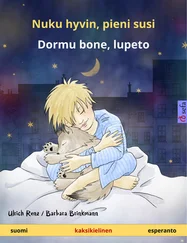1 ...7 8 9 11 12 13 ...16 I went back to school after the Easter holidays. I can still see the look in people’s faces now: their sympathy. When people said how sorry they were it used to annoy me. I wanted to say to them ‘Why are you sorry; it wasn’t anything to do with you; you’re not to blame’. Emotionally, I became a lot more sensitive. Add the sensitivity from my mum’s death to the alienation I felt at Chelsea when I first arrived there in my late teens and it made me particularly vulnerable.
My mum had been so supportive of me as a child. One of the things that upset me most about not having her around was that I could no longer share my experiences and achievements with her. She was the one who picked us up from school. She took so much interest in us. Some of the things I did, I felt I was doing for her. We couldn’t wait to tell her what we’d done at school when she was there waiting for us at the school gates. She was so interested in our lives. After she died, I felt this huge hole because she was no longer there. From the age of seven upwards, I always played football on the school pitches during lunch hour. Because I was left-footed, every day I used to come home with eight inches of mud down my right trouser leg, a crusty, muddy mark that mapped out the trajectory of a slide tackle and invariably ended with a hole in the trouser knee. Mum used to wash them and mend them patiently. She had a rota with my school trousers because I got them muddy every day. I often think now ‘Thank God she let me carry on ruining my trousers’. I wish I could communicate that to her but I can’t.
That was one of the saddest aspects of it. Through all the various milestones of my life and my career, I always had a moment when I wished she could see it. It would have made all the sacrifices and the hardships that she had endured for me worthwhile. And I know, just like any mother, she would be proud of me and my sisters.
My mum’s death changed me. It strengthened my drive and my outlook. I was always single minded anyway. I was always feisty and ambitious but when she died it made me want to leave Jersey. It is such a small island and it was such a traumatic experience that it turned parts of Jersey into unhappy places for me for a few years. Whenever I went down certain roads or visited certain beauty spots or beaches or shops, it brought back memories of my mum. It just used to upset me. Now, I can look back on them as happy memories and happy associations but for a long time those memories just upset me deeply.
I love my island. It’s only nine miles wide and five miles north to south but I loved growing up there. My identity is Jersey. Even though my dad wanted to call me Jean-Pierre (he was overruled by my mum), I feel more English than French – but more Jersey than English. Life seemed uncomplicated and happy there in the years before Mum died. I would cycle down the hill from my house to St Ouen’s Bay, with its dramatic dunes and its miles of beach and the warren of underground tunnels the Germans built after they invaded Jersey at the start of the Second World War. I’d play football for hours on the firm sand. Then, for a real challenge, I’d cycle back up the steep hill past Stinky Bay, where the smell of seaweed wafted up from the rocks below, and past the trees bent over by the sea breeze and the signs advertising Jersey Royal Potatoes back to my house on the hill.
It’s such a beautiful place, such a stark contrast to what I had to confront in London. No wonder I felt the culture shock so badly when I swapped Jersey for Burnt Oak. Often, in the evening, when I was seventeen or eighteen, I would drive my car to the headland at Grosnez, the most northwesterly point of the island, and park it by the ruins of the fourteenth-century arch there. I’d get out, stare over the water to Sark and then lie on the bonnet, listening to the waves and staring up at the stars. Sometimes, going to those places still makes me melancholy but back then it would bring tears to my eyes. I suppose it was part of coming to terms with letting go of my mum. I never said goodbye to her. I never had that raw sort of emotion. I kept it all within me.
People can psychoanalyse me as much as they want and it would be very easy to pin all my emotional baggage onto this one massive event. It would be easy to say I reacted to Robbie Fowler because my mum died or I hit David Batty because my mum died. But I might have been like that anyway. I don’t know. One of the reasons I believe I kept it from everyone at Chelsea and was glad that no one knew about it was because I had this fear that if people knew about my mum, then at some point someone would have made reference to it to try to use it against me. And I knew that that would have made me uncontrollably furious.
That would have been worse than anything I experienced, worse than any of the homophobic taunts. That’s one of the reasons I have never spoken about it. I never told anyone at Chelsea about it. In that way, I used football as a valid reason not to talk about her death. It was part of my process of denial. I told myself I couldn’t talk about it because people would use it against me and that meant I didn’t have to talk about it.
At various points during my playing career, I might get a casual question about what my parents did. I’d say my dad was a chartered quantity surveyor and my mum was a housewife. I just never talked about it publicly because I wanted to protect what I had. Some people would probably say it was a classic case of denial but it wasn’t that. I shared my thoughts with my friends in Jersey, friends like Jason and Susie, and now that I have moved away from football, I don’t feel as uncomfortable talking about it with people outside the game.
It’s strange. I have a close relationship with my dad and my sisters. We’re a loving family but we don’t talk about that time much. There are times when I think we ought to talk about it. My younger sister was only seven, just a bit younger than my own daughter is now, when Mum died. She never knew her mum. She deserves to know more.
When I became a footballer, it was my decision not to say anything about my mum so it’s always been my responsibility to deal with people that don’t know about her death and therefore say something inappropriate. But with any problem I’ve ever had, the easiest thing for me to do would have been to blame it on the fact that my mum died when I was a kid. I have never used her death as an excuse. That’s one thing I find hard to accept about some people: there is a type of person that uses things that have happened to them as an excuse to fail. Some circumstances cause people to implode. Equally, you can try and be determined to cope with adversity and get over it. I went through a stage of just feeling utterly lost. I questioned everything. I questioned the fundamentals of my life and there probably was a time when I could have made some bad decisions that derailed me.
However, I avoided that. It is a huge credit to my dad and my two sisters, and to my school and friends, that things happened that way. Football was always a huge release for me, too. It was just there. That was my time – I was never distracted. It allowed me to block out all the stuff about my mum. It helped me focus. I was desperate to win anyway but this made me even more absorbed in my football. And my mum’s death had another effect: I’ve been through bad times in my career and I’ve been able to cope because none of it was as traumatic as my mum dying.
I also owe a huge debt of gratitude to the woman who became my dad’s partner in the years after Mum died. Her name was Alice and she became a mother figure to me and my sisters. There was no sense of resentment towards her because she had taken our mum’s place or anything like that. I only feel a deep and lasting appreciation towards her. In many ways, she kept our family together. She and my dad never lived together but we always went round to her house for Sunday lunch and she became a steadying, stabilising influence in all our lives. She was a lovely, loving, caring, gentle and kind lady.
Читать дальше












